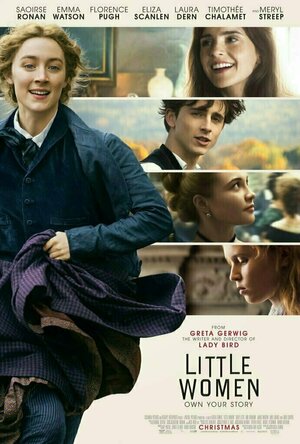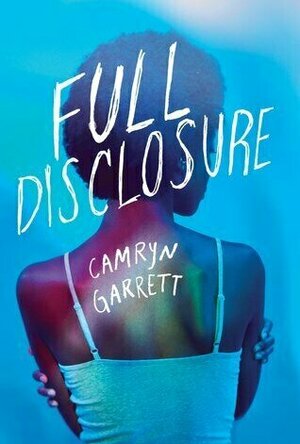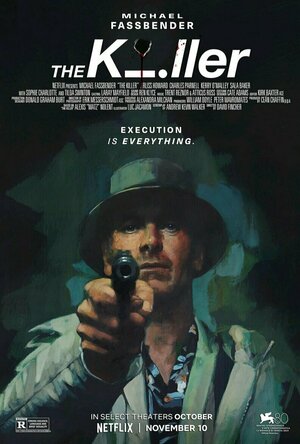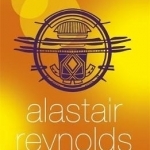Search
Tom Ford recommended Little Women (2019) in Movies (curated)
Sara Cox (1845 KP) rated Full Disclosure in Books
Oct 8, 2019
I whizzed through this book in only 5 hours of actual reading time. It completely captivated me! Simone is a teenager, with all the problems and changes that come with it. To top it, she's adopted - with two gay dad's - and she was born with HIV. I don't know about everyone else, but I didn't cope with being a teenager very well so I'm already proud of this fictional yet utterly believable character. The narrative is done through Simone's eyes. And is so honest. It encompasses all the things that a teenager would be thinking; school stresses, friendship groups, sexuality and let's not forget high-school crushes. This is a brilliant coming of age YA novel. One that I think I will rave about for a while. Not only was it a brilliant read, it also taught me loads about HIV (U=U) and living with HIV. And the theme of this text is completely right, people don't know as much as they should and they react based on incomplete facts. I am so glad that I read this book and implore you to read it too.
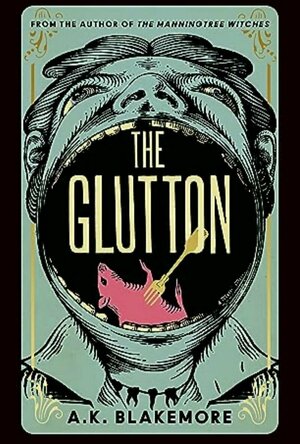
The Glutton
Book
One man with an insatiable hunger: a novel of desire and destruction in Revolutionary France, based...
Historical fiction France
BankofMarquis (1832 KP) rated The Killer (2023) in Movies
Nov 18, 2023
Interesting...but ends with a "thud"
Director David Fincher has a strong track record of interesting films…SE7EN, FIGHT CLUB, THE SOCIAL NETWORK (to name a few). Michael Fassbender is one of the more interesting actors working today…HUNGER, INGLORIOUS BASTERDS, PROMETHEUS (to name a few). So when these 2 got together to make a film of the graphic novel THE KILLER, anticipation was high.
Lower those expectations just a bit and you’ll be rewarded by an enteraning (enough) film/character study that is…interesting, but lands with a “thud”.
Based on the aforementioned graphic novel that was written by Alexis Nolent and illustrated by Luc Jacamon, THE KILLER follows the titular character after a hit has gone wrong and he must fight to save his life, while seeking vengeance on those that wronged him.
It is a “thinking man’s” hit-man film set in the seedy underground of a high-priced assassin. In lesser hands this could be a lesser John Wick knock-off, but in Fincher’s skilled fingers, THE KILLER is an intriguing character study.
It helps that the central figure of this film is portrayed by Michael Fassbender who is fascinating to watch even if he is just sitting around looking out a window. And this is good…for he spends the first 20 minutes of this film…sitting around looking out a window (waiting for his target to show up). It is a unique choice in a film such as this and with Fincher’s direction and Fassbender’s performance, it works more often than it doesn’t.
After the initial hit goes awry, sending Fassbender’s character on a global manhunt, the rest of the film is a series of one-on-one scenes with THE KILLER versus THE LAWYER (Charles Parnell - who is turning into a pretty reliable “that guy” character actor). THE KILLER versus THE BEAST (in what is the best action scene in the film) and THE KILLER versus THE CLIENT (portrayed by Arliss Howard in another portrayal of an “a-hole rich guy”). All of these scenes work for the most part, but none of them “knock it out of the park”.
The only scene that comes close to knocking it out of the park is THE KILLER versus THE EXPERT and that is because The Expert is played by Tilda Swinton and has 90% of the dialogue in the scene. It is always exciting to see 2 marvelous performers sitting across a table, playing off each other and Fassbender and Swinton (especially) shine in this portion of the film.
The problem with THE KILLER is that the separate scenes do not add up to a cohesive whole - and certainly the parts are more interesting than the final procduct and that blame needs to be placed at the feet of Director Fincher who should have been able to blend these scenes together better. He isn’t helped by a finale scene that lands with a thud…on purpose. But a “thud” is a “thud” and that is a tricky way to end the film.
And…in the case of THE KILLER…Fincher (and Fassbender) did not build up enough equity heading into the final scene that one can forgive “the thud”….though it is still a pretty good film. The “thud” pulls this film down from “really good” (not great) to just…”good”.
Letter Grade: B
7 stars (out of 10) and you can take that to the Bank(ofMarquis)
Letter Grade: A-
8 stars (out of 10) and you can take that to the Bank(ofMarquis).
Lower those expectations just a bit and you’ll be rewarded by an enteraning (enough) film/character study that is…interesting, but lands with a “thud”.
Based on the aforementioned graphic novel that was written by Alexis Nolent and illustrated by Luc Jacamon, THE KILLER follows the titular character after a hit has gone wrong and he must fight to save his life, while seeking vengeance on those that wronged him.
It is a “thinking man’s” hit-man film set in the seedy underground of a high-priced assassin. In lesser hands this could be a lesser John Wick knock-off, but in Fincher’s skilled fingers, THE KILLER is an intriguing character study.
It helps that the central figure of this film is portrayed by Michael Fassbender who is fascinating to watch even if he is just sitting around looking out a window. And this is good…for he spends the first 20 minutes of this film…sitting around looking out a window (waiting for his target to show up). It is a unique choice in a film such as this and with Fincher’s direction and Fassbender’s performance, it works more often than it doesn’t.
After the initial hit goes awry, sending Fassbender’s character on a global manhunt, the rest of the film is a series of one-on-one scenes with THE KILLER versus THE LAWYER (Charles Parnell - who is turning into a pretty reliable “that guy” character actor). THE KILLER versus THE BEAST (in what is the best action scene in the film) and THE KILLER versus THE CLIENT (portrayed by Arliss Howard in another portrayal of an “a-hole rich guy”). All of these scenes work for the most part, but none of them “knock it out of the park”.
The only scene that comes close to knocking it out of the park is THE KILLER versus THE EXPERT and that is because The Expert is played by Tilda Swinton and has 90% of the dialogue in the scene. It is always exciting to see 2 marvelous performers sitting across a table, playing off each other and Fassbender and Swinton (especially) shine in this portion of the film.
The problem with THE KILLER is that the separate scenes do not add up to a cohesive whole - and certainly the parts are more interesting than the final procduct and that blame needs to be placed at the feet of Director Fincher who should have been able to blend these scenes together better. He isn’t helped by a finale scene that lands with a thud…on purpose. But a “thud” is a “thud” and that is a tricky way to end the film.
And…in the case of THE KILLER…Fincher (and Fassbender) did not build up enough equity heading into the final scene that one can forgive “the thud”….though it is still a pretty good film. The “thud” pulls this film down from “really good” (not great) to just…”good”.
Letter Grade: B
7 stars (out of 10) and you can take that to the Bank(ofMarquis)
Letter Grade: A-
8 stars (out of 10) and you can take that to the Bank(ofMarquis).
<i>I received this book for free through Goodreads First Reads.</i>
<i>Mrs B</i> is a contemporary novel by lecturer and writer Elizabeth Walcott-Hackshaw. Whilst loosely based on Gustave Flaubert’s <i>Madame Bovary</i>, it is set in Trinidad and contains a number of themes. Beginning in June 2009 it spans the course of a year before finishing in July 2010.
The titular character <i>Mrs B</i> is a middle-aged woman named Mrs Elena Butcher who, due to dislike of her husband’s surname, is always referred to as Mrs B. At the beginning of the book Mrs B and her husband, Charles, are driving to the airport to collect their daughter, Ruthie, who has flown home from Boston University. It is revealed that Ruthie suffered a nervous breakdown a couple of months before hand, but what is yet to be discovered is that she is pregnant. Whilst in Boston, Ruthie had developed an intimate relationship with a man dubbed the Professor. Mrs B’s daughter was once her pride and joy but the result of Ruthie’s down fall begins to have a negative effect on Mrs B’s life and sours her relationships with those previously close to her, particularly her husband.
Pregnancy and romantic affairs are not the only themes of the novel. Trinidad is becoming a dangerous place with crimes, such as murders, becoming a daily occurrence. Politics plays its hand in these everyday occurrences, so it is not very reassuring when Mrs B’s ex-lover becomes involved with the government. However the events in Trinidad seem more normal than the emotions Mrs B feels within her own family.
The story line jumps around a lot from character to character and also from past to present. Whilst not exactly confusing it is difficult to understand what the actual plot line is. There was not much of climax and the reader does not really get a chance to connect with the characters and so the conclusion feels neither disappointing nor satisfactory.
For readers unfamiliar with the Caribbean and life in Trinidad this book is quite educational, providing descriptions of the culture and customs of the islands inhabitants. So despite the lack of a strong story line, Walcott-Hackshaw writes effectively to make this an interesting read.
<i>Mrs B</i> is a contemporary novel by lecturer and writer Elizabeth Walcott-Hackshaw. Whilst loosely based on Gustave Flaubert’s <i>Madame Bovary</i>, it is set in Trinidad and contains a number of themes. Beginning in June 2009 it spans the course of a year before finishing in July 2010.
The titular character <i>Mrs B</i> is a middle-aged woman named Mrs Elena Butcher who, due to dislike of her husband’s surname, is always referred to as Mrs B. At the beginning of the book Mrs B and her husband, Charles, are driving to the airport to collect their daughter, Ruthie, who has flown home from Boston University. It is revealed that Ruthie suffered a nervous breakdown a couple of months before hand, but what is yet to be discovered is that she is pregnant. Whilst in Boston, Ruthie had developed an intimate relationship with a man dubbed the Professor. Mrs B’s daughter was once her pride and joy but the result of Ruthie’s down fall begins to have a negative effect on Mrs B’s life and sours her relationships with those previously close to her, particularly her husband.
Pregnancy and romantic affairs are not the only themes of the novel. Trinidad is becoming a dangerous place with crimes, such as murders, becoming a daily occurrence. Politics plays its hand in these everyday occurrences, so it is not very reassuring when Mrs B’s ex-lover becomes involved with the government. However the events in Trinidad seem more normal than the emotions Mrs B feels within her own family.
The story line jumps around a lot from character to character and also from past to present. Whilst not exactly confusing it is difficult to understand what the actual plot line is. There was not much of climax and the reader does not really get a chance to connect with the characters and so the conclusion feels neither disappointing nor satisfactory.
For readers unfamiliar with the Caribbean and life in Trinidad this book is quite educational, providing descriptions of the culture and customs of the islands inhabitants. So despite the lack of a strong story line, Walcott-Hackshaw writes effectively to make this an interesting read.
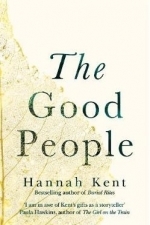
The Good People
Book
Shortlisted for the Walter Scott Prize 2017 County Kerry, Ireland, 1825. NORA, bereft after the...
ClareR (6062 KP) rated The Glutton in Books
Dec 20, 2023
Well, here’s another absolute banger of a historical fiction novel!
The Glutton by A. K. Blakemore is based on the real life story of Tarare, a man born into poverty but happy with that life. That is until his mother meets the man who changes her life, presumably for the better - and changes Tarare’s life for the worst.
He’s known as the man who ate a golden fork (that eventually kills him), live animals, offal, a baby - but still people want to watch him put away vast amounts of food (and non-food!). And if it means he’s fed, Tarare sees it as a way of satiating the ever-present hunger. The draw of the circus freak is overwhelming for the French public.
Tarare is a simple man who is taken advantage of at every turn. I felt so sorry for him. He has the disadvantage of not only being very unusual, but also uneducated and poor. He has to fight to survive, both as a soldier and as a civilian, and he’s seen as a joke by the more well-off.
For such a grotesque subject matter, the writing really is rather beautiful. Descriptions of Tarare’s childhood and the place that he grew up were sensitively done - you could see the love of his local area and the love he felt for his mother. Even in the most disgusting sections of the book, there was a kind of beauty.
A deliciously bizarre, beautifully written book. I loved it.
The Glutton by A. K. Blakemore is based on the real life story of Tarare, a man born into poverty but happy with that life. That is until his mother meets the man who changes her life, presumably for the better - and changes Tarare’s life for the worst.
He’s known as the man who ate a golden fork (that eventually kills him), live animals, offal, a baby - but still people want to watch him put away vast amounts of food (and non-food!). And if it means he’s fed, Tarare sees it as a way of satiating the ever-present hunger. The draw of the circus freak is overwhelming for the French public.
Tarare is a simple man who is taken advantage of at every turn. I felt so sorry for him. He has the disadvantage of not only being very unusual, but also uneducated and poor. He has to fight to survive, both as a soldier and as a civilian, and he’s seen as a joke by the more well-off.
For such a grotesque subject matter, the writing really is rather beautiful. Descriptions of Tarare’s childhood and the place that he grew up were sensitively done - you could see the love of his local area and the love he felt for his mother. Even in the most disgusting sections of the book, there was a kind of beauty.
A deliciously bizarre, beautifully written book. I loved it.
Cynthia Armistead (17 KP) rated A Free Man of Color (Benjamin January, #1) in Books
Mar 1, 2018
Historical fiction isn't my favorite genre, but I'm much more willing to read it when it's mixed with mystery. I've read some of Hambly's work before and know her to be a fine writer, and I'd read good reviews of this series by people I respect, so I decided to give it a whirl.
I suppose all the descriptions of people's clothing would have mattered much more to someone who cared about such things, but I do realize that they were important in the context of the story. Personally, I was relieved when the main character went on a journey! I would have been happier had his medical skills been utilized more frequently than they were, but I suppose his experiences were fairly true to life for a "colored" man of his time.
I did learn quite a lot—things that I intend to verify in non-fiction sources shortly. The information about the black code, for instance, and the explanation of the distinction between "black" and "colored" people seemed too precise to be fabricated.
I knew, too, that Louisiana is the only U.S. state whose laws are based on French rather than English common law, which seemed silly to me. Why wouldn't they go with the standard everyone else used? After reading this novel, I'm starting to realize that there may have been rights given to citizens under French law that were lost under English law.
I'm not sure as to whether or not I'll go forward in the series, as I'm not sure that I can handle the unhappiness I can see foreshadowed even in some of the titles. However, I will say that this volume is well-written and well-plotted. I certainly didn't guess who the killer was or why the murder was committed before the big reveal, and that was a pleasant change!
I suppose all the descriptions of people's clothing would have mattered much more to someone who cared about such things, but I do realize that they were important in the context of the story. Personally, I was relieved when the main character went on a journey! I would have been happier had his medical skills been utilized more frequently than they were, but I suppose his experiences were fairly true to life for a "colored" man of his time.
I did learn quite a lot—things that I intend to verify in non-fiction sources shortly. The information about the black code, for instance, and the explanation of the distinction between "black" and "colored" people seemed too precise to be fabricated.
I knew, too, that Louisiana is the only U.S. state whose laws are based on French rather than English common law, which seemed silly to me. Why wouldn't they go with the standard everyone else used? After reading this novel, I'm starting to realize that there may have been rights given to citizens under French law that were lost under English law.
I'm not sure as to whether or not I'll go forward in the series, as I'm not sure that I can handle the unhappiness I can see foreshadowed even in some of the titles. However, I will say that this volume is well-written and well-plotted. I certainly didn't guess who the killer was or why the murder was committed before the big reveal, and that was a pleasant change!
Phil Leader (619 KP) rated On the Steel Breeze in Books
Nov 21, 2019
On The Steel Breeze is the second in Reynold's Poseidon's Children trilogy and deals with the relationship between humans and artificial intelligence.
Taking up the story several years after Blue Remembered Earth the main (human) protagonist is Chiku Akinya, daughter of Sunday Akinya from the first book. She has cloned herself and the three Chikus pursue different fates but their stories inevitably interact with each other.even across light years of space.
One is lost in space, presumed dead. Another is on a colony ship heading to a planet that images have shown has a clearly alien structure on the surface. The third remains on Earth, presumably in safety.
As the colony ships near the destination planet they are riven by internal strife and politics just as Chiku finds that things are not as they seem. There are secrets both within the colony ship and with the planet itself, secrets that are bound to cause conflict when they are brought to light. On earth it is clear that some important information has been hidden and Chiku must risk her safe existence to uncover the truth, but at a high cost.
The book starts slowly, maybe a little too keen to establish who Chiku is and reinforce how the world she inhabits is different from ours. However once the story moves to the colony ships it moves along at a good pace with enough twists and surprises to keep the reader's interest. There is plenty of intrigue and it really is hard to tell where the story is going next.
We have the usual 'hard physics' at work as should be expected in a Reynolds book. Except for the hand wavium 'Chibesa physics' that powers the ships, the laws of physics are rigidly adhered to. Again we see how a battle across millions of miles of space could be achieved.
I found the ending to be satisfying (I have read reviews criticising it). It ties up the story of the earth based Chiku. The story for the colonists is clearly only beginning and the third book in the series is set up neatly in the epilogue, while at the same time providing closure on the fate of the colonists.
My only real criticism of the book (and it in no way detracted from it) was the cloning-and-memory-merging gimmick used for the Chiku clones. Although this neatly allowed the story to move between the colony ships and the solar system, I felt that this had been explored better (and with more justification) in Reynold's novel House Of Suns. Here it just seems to be a 'sci-fieqsue' way of allowing the main protagonists to communicate and empathise across the vast tracts of space and otherwise seemed superfluous given the complex set up.
Overall another excellent book from Reynolds, definitely up there with the best 'space opera' novels. I am looking forward to the third book immensely.
Taking up the story several years after Blue Remembered Earth the main (human) protagonist is Chiku Akinya, daughter of Sunday Akinya from the first book. She has cloned herself and the three Chikus pursue different fates but their stories inevitably interact with each other.even across light years of space.
One is lost in space, presumed dead. Another is on a colony ship heading to a planet that images have shown has a clearly alien structure on the surface. The third remains on Earth, presumably in safety.
As the colony ships near the destination planet they are riven by internal strife and politics just as Chiku finds that things are not as they seem. There are secrets both within the colony ship and with the planet itself, secrets that are bound to cause conflict when they are brought to light. On earth it is clear that some important information has been hidden and Chiku must risk her safe existence to uncover the truth, but at a high cost.
The book starts slowly, maybe a little too keen to establish who Chiku is and reinforce how the world she inhabits is different from ours. However once the story moves to the colony ships it moves along at a good pace with enough twists and surprises to keep the reader's interest. There is plenty of intrigue and it really is hard to tell where the story is going next.
We have the usual 'hard physics' at work as should be expected in a Reynolds book. Except for the hand wavium 'Chibesa physics' that powers the ships, the laws of physics are rigidly adhered to. Again we see how a battle across millions of miles of space could be achieved.
I found the ending to be satisfying (I have read reviews criticising it). It ties up the story of the earth based Chiku. The story for the colonists is clearly only beginning and the third book in the series is set up neatly in the epilogue, while at the same time providing closure on the fate of the colonists.
My only real criticism of the book (and it in no way detracted from it) was the cloning-and-memory-merging gimmick used for the Chiku clones. Although this neatly allowed the story to move between the colony ships and the solar system, I felt that this had been explored better (and with more justification) in Reynold's novel House Of Suns. Here it just seems to be a 'sci-fieqsue' way of allowing the main protagonists to communicate and empathise across the vast tracts of space and otherwise seemed superfluous given the complex set up.
Overall another excellent book from Reynolds, definitely up there with the best 'space opera' novels. I am looking forward to the third book immensely.
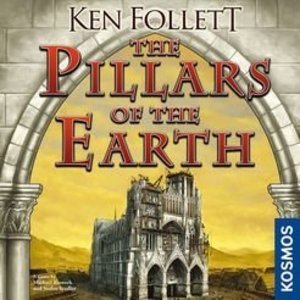
The Pillars of the Earth
Tabletop Game
The Pillars of the Earth is based on the bestselling novel by Ken Follett and the 2006 game in the...
Boardgames WorkerPlacementGames BooksintoGames
